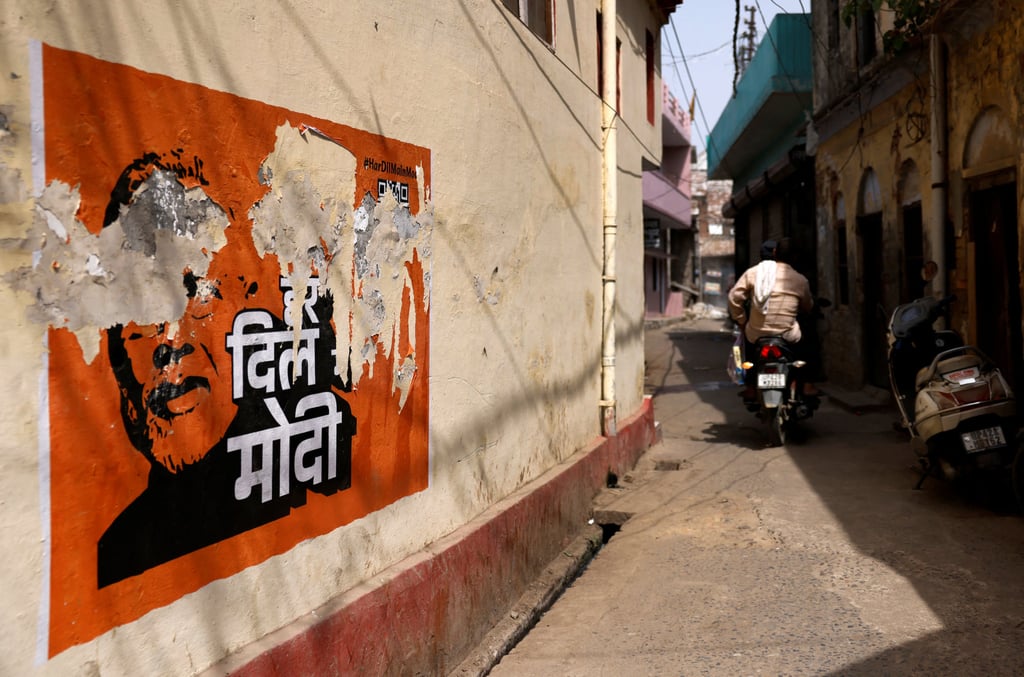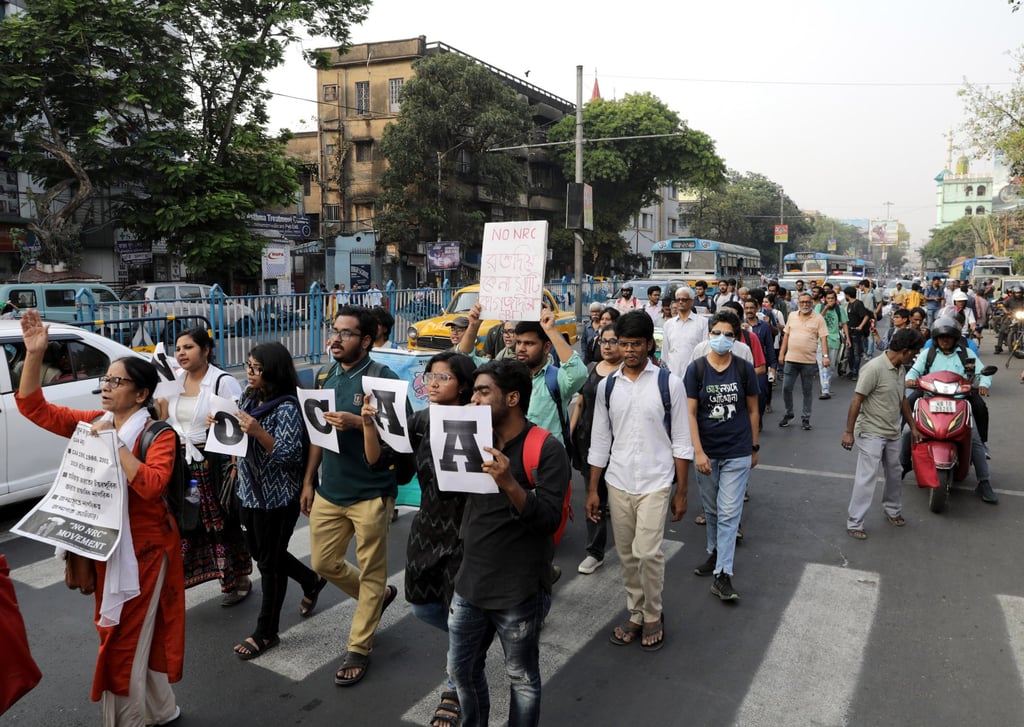
In India, PM Narendra Modi’s new coalition needs all-embracing approach to minorities
- Loss of majority in the election has left Modi’s BJP reliant on coalition allies, which could mean a more consensus-based approach to passing laws
During a six-week election campaign, ruling party leaders made toxic references, in particular to Muslims.
However, halfway through the seven-phased election, Modi denied he was referring to Muslims in an earlier speech in which he had said the opposition Congress party would redistribute people’s wealth to infiltrators and those with more children.
Did the BJP sense it had blundered by overplaying the Hindu card?

It would appear so because the BJP candidate in Rajasthan’s Banswara – where Modi made the infiltrator remark – was trounced by a candidate from an obscure regional party.
In Faizabad, home to the opening ceremony of a temple to the Hindu god Ram presided by Modi, the party again lost. Simple maths shows that Muslims, who account for 20 per cent of India’s population, could not alone have accounted for the defeats.
Throughout a journey that I undertook through Uttar Pradesh – the state which contributes the most number of parliament seats – several Muslim citizens expressed their anguish.
Irrespective of religion, most people said they were more bothered about unemployment and rising living costs than about Hindu-Muslim issues.
Small wonder that the BJP’s seat share dropped from 62 out of 80 to 33 in Uttar Pradesh, a key reason for the party to have fallen short of securing an outright majority.
It is now perilously dependent on coalition allies – particularly the Telugu Desam Party and the Janata Dal (United) – and also independent candidates and other smaller parties.
While Modi has signalled that he would remain India’s bold and brazen leader by retaining his entire core team of ministers, my bet is that he will be relying on a consensus rather than pushing through sensitive laws and programmes.

In February, the hill state of Uttarakhand passed the Uniform Civil Code, making it the first state in India to have such a law unifying a patchwork of codes based on customs and different faiths governing such laws as marriage, divorce and inheritance.
Implementing a uniform civil code nationwide – which has been a core pledge of the BJP – was a part of the agenda of the newly sworn in federal government, Law Minister Arjun Ram Meghwal said on Tuesday.
Muslim theologians see the code as a threat to Islamic law and religious practices, but many others have backed it.
Janata Dal (United) party leader K.C. Tyagi on Wednesday told The Indian Express newspaper that the party was not against the Uniform Civil Code, but it should be implemented through a consensus.
“Now that the Modi government’s majority is not there, he will have to take everybody along. It will be better for the roll-out of sensitive laws like the Uniform Civil Code as it will not be seen as pushed by a majoritarian government,” said Yashwant Deshmukh, an independent political commentator.
The BJP will have to take a similar tack on other sensitive issues, but clearly there is a long way to go. Out of a ministerial council of 71 in the new coalition, only five are from minority groups and none from the Muslim community.
Former prime minister Atal Bihari Vajpayee, also of the BJP, was widely respected across party affiliations because he would always work towards building a consensus.
Modi now needs to do the same, which will only cement India’s status as a global power.

